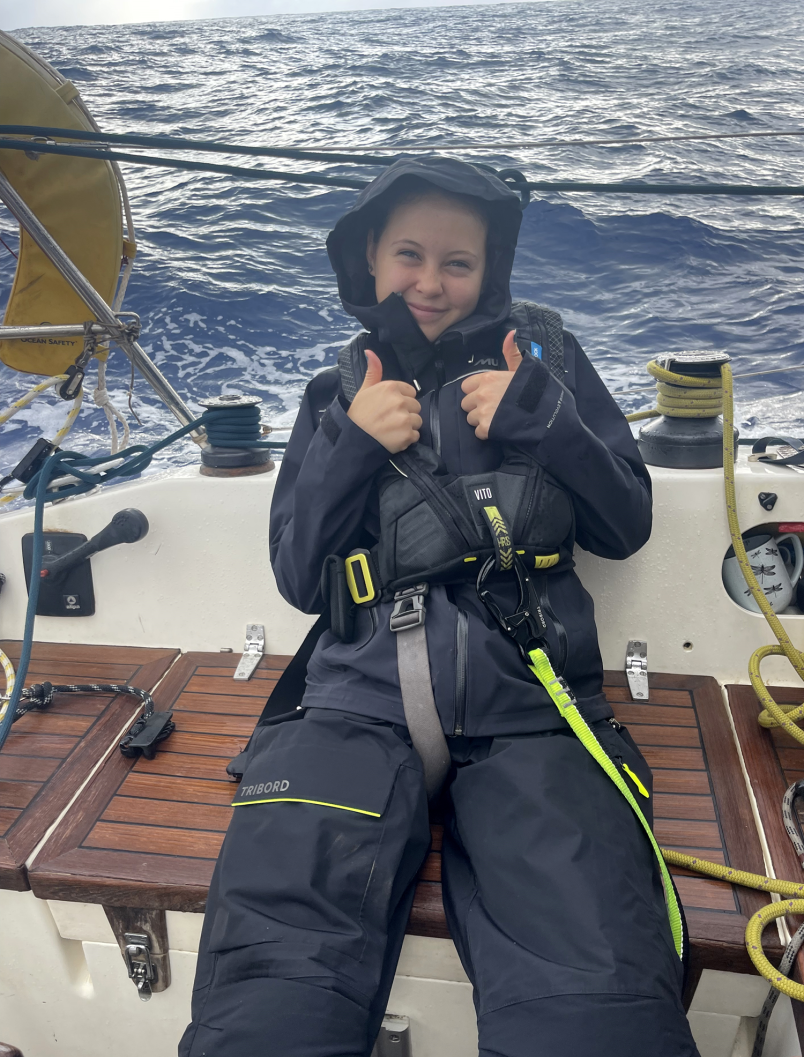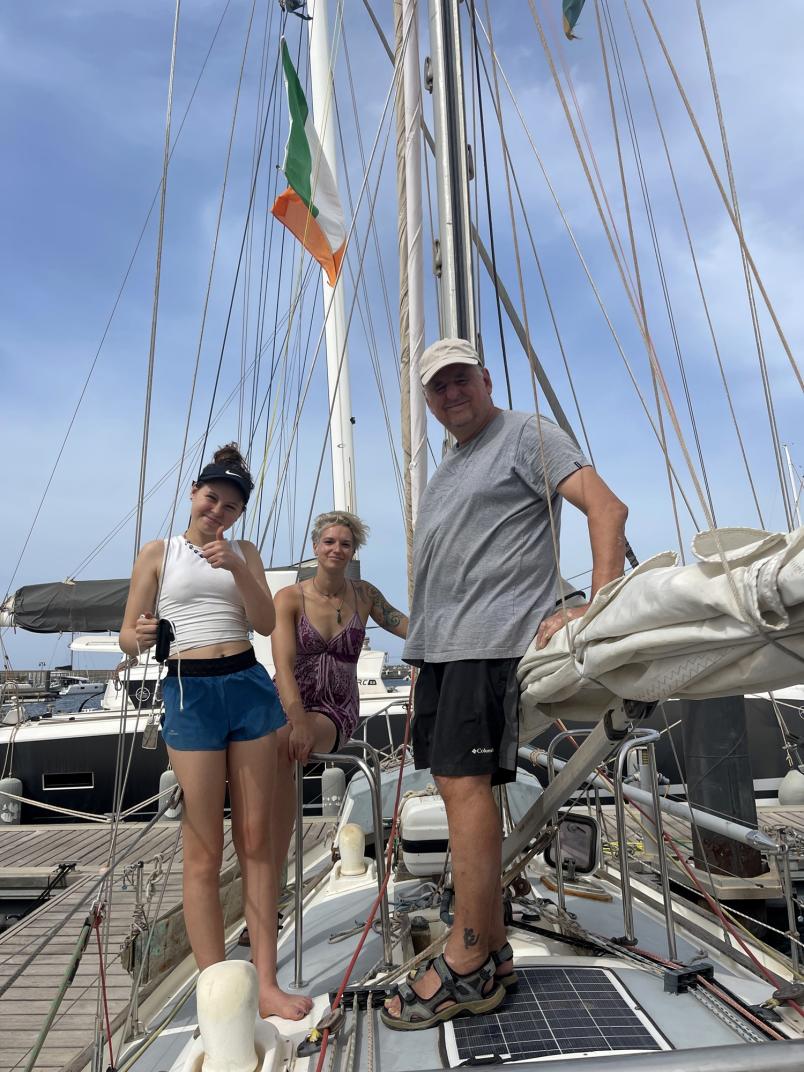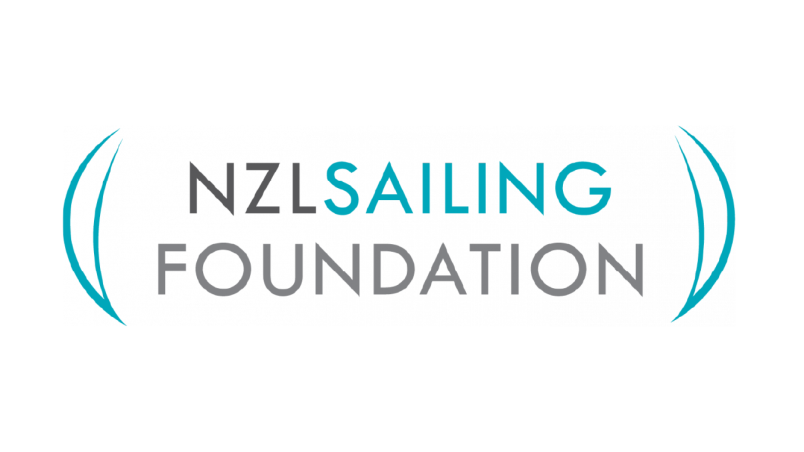Teen's transatlantic voyage for the ages
By Kathy Catton
For 14-year-old Reija Treacy Wolnik, you could say adventure is in her blood.
When she was four, her family emigrated from Ireland to New Zealand. And at 11, she summited Mt Taranaki.
These adventures, along with her love of horse riding, surfing and skiing, were put to good use for her latest challenge.
The idea of crossing the Atlantic had been brewing in grandfather Leszek’s mind for some time.
As a keen cruising sailor, he purchased a Vancouver 32 in Sweden in 2017. In 2018 he sailed the entirety of the Norwegian coast up to Lofoten and back to Dublin, then during the Covid years he circumnavigated The Faroe Islands and Ireland.
“The plan was to cross the Atlantic in 2022,” said Leszek.
However, fate had other plans, and following his brother sadly passing away, he visited his daughter, Sorcha and granddaughter Reija in New Zealand in early 2023.
“It was during this time in New Zealand, while discussing the aborted voyage, that Reija, then 13, asked me, ‘If you cross the Atlantic later this year, can I go with you?’” Leszek explained.
“Although I instinctively agreed, I had a difficult time thinking through the choices. Would her parents allow it? Was it an acceptable risk or was it pure recklessness?”
Reija had only recently learnt to sail at the New Plymouth Yacht Club, completing the Learn to Sail programme in the Optimist. It wasn’t a surprise that her parents were initially sceptical of the idea, although also very committed to allowing Reija to do what she wanted to do.
“Reija is very determined, strong and feisty,” said Sorcha. “And we believe in her. Yes, we had our fears, but we know that family is number one for my dad, so we knew he would do everything within his power to make the trip a successful one.”

The family agreed to a three-person crew, and after meticulous preparation and a journey to Lanzarote, Canary Islands, to collect the boat, they met Marija, their third crew member.
The Ocean Cruising Club (OCC) played a pivotal role in the trip. It changed its rules to allow Reija to become an associate member and modified its Youth Sponsorship Programme (originally only open to 18–25-year-olds) to allow her to receive a grant to pay for equipment and travel.
After her voyage, the OCC awarded Reija the 2023 Qualifiers Mug, for the most ambitious or arduous voyage by an OCC member.
“The OCC became the most amazing resource and facilitator of our trip,” said Leszek. “With their help, I designed a training programme, and they gave me a list of safety factors that needed to be
mitigated. Basically, my outcome before we set off from the Canaries was to have both crew able to navigate and sail safely even if all electrics were lost and I wasn’t available.”
All procedures were broken down into lists, detailing every step. For example, raising the main had 21 steps and getting the boat ready for passage had over 40.
"It was a steep learning curve, for sure,” Reija said. “But by the end of the training, I really felt like I was sailing intuitively. I could hear the different wind sounds on the boom or notice the sun slide off to the side of the bow when the direction changed. I was excited to set off.”
The first leg of the voyage took them to the Cape Verde Islands. The crossing was rough with four metre-swell seas and 30 knots of wind.
“This was what I had imagined the trip to be like, so I didn’t really know it was a big deal,” Reija said. “Yes, we had breakages, but I knew just to head the boat into the wind, and we would fix things. I guess in my mind maybe because of all the sailing movies we had watched, I had prepared for this kind of wild weather and extreme sailing. And I loved it!”

After a few days of respite on reaching Cape Verde, the crew set off again, heading for Guadeloupe. Mixed conditions meant light winds for some days followed by Force 8 winds.
Leszek credits his “sea-kindly” boat and “working conservatively” as being critical factors in this part of the crossing. Another success factor was the communication on board.
“Reija initiated ‘team meetings’ that proved very successful due to the three of us being of very diverse ages and life experiences,” Leszek said. “These meetings allowed us to remain curious, open and supportive of each other while discussing the things we were grateful for as well as those that were troubling us.”
After 20 days at sea, Reija spotted land.
As had become customary, the three of them celebrated by singing and dancing.
“I sent my Mum a text on the satellite phone, and she told me she was crying. She was so happy we had nearly made it.”
Reflecting on her experience, Reija acknowledges the profound impact of her Atlantic Ocean crossing.
Highlights include the sense of independence, the camaraderie with her crew and the strengthening of her relationship with her grandad, she said.
“Our anthem for the trip was David Bowie’s Space Oddity… It was the perfect song for our Atlantic adventure.”
Leszek is equally proud of the journey and dedicates the passage to Reija’s parents and his wife.
“I’ve also so much praise for the crew – their courage and tenacity, especially Reija, who just went
out and did it – as usual!”
For Reija, her sights are now set on more sailing.
“I’d like to cross more oceans,” she said.
“I realise I want to get everything done now, so I’m learning just to take it slowly. I’m inspired by other young women who sail – like [Kiwi 2023 Solo Transtasman competitor] Lucy Te Moananui and [Australian solo offshore sailor] Jessica Watson.”

















